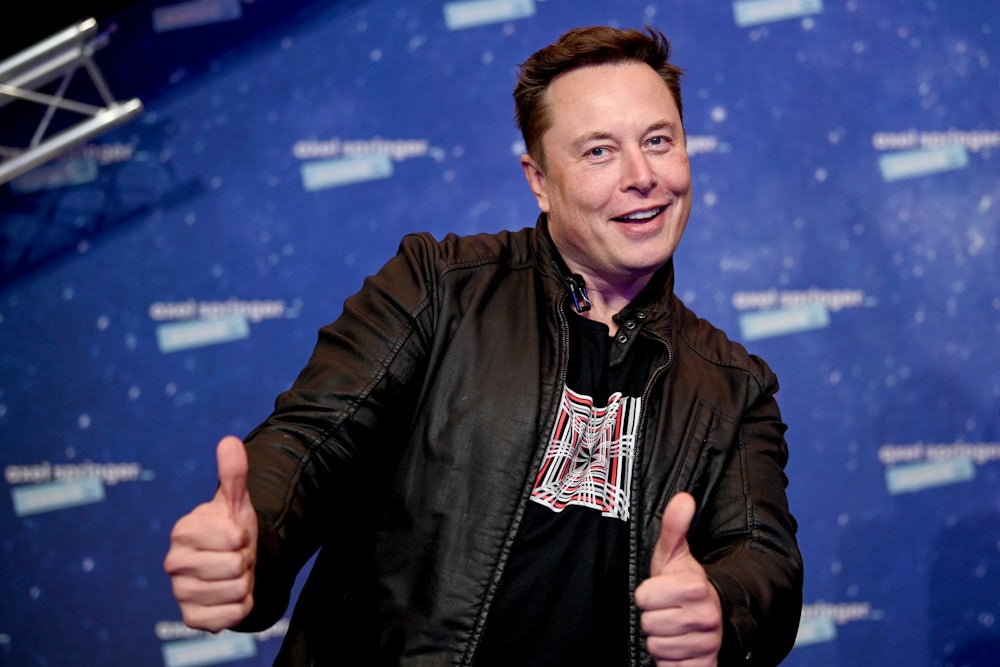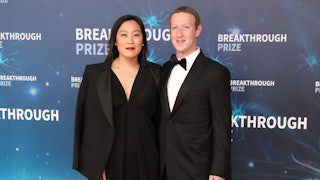Late last month, Elon Musk, the richest person in the world and narrow tunnel pioneer, conducted a poll on Twitter. “Free speech is essential to a functioning democracy,” Musk tweeted to his 80 million followers. “Do you believe Twitter rigorously adheres to this principle?” An hour later, he posted a cryptic follow-up: “The consequences of this poll will be important. Please vote carefully.” After 70 percent of respondents voted “no,” Musk tweeted again. “Given that Twitter serves as the de facto public town square, failing to adhere to free speech principles fundamentally undermines democracy. What should be done?”
It was a standard series of Musk tweets. Initiated in the middle of the night, it was both pompous and frivolous, simultaneously tossed off and the work of someone trying far too hard. It also, as many of his tweets do, contained a tantalizing hint for his legions of rabid fans: Elon Musk is about to do something big. Or not—Musk, a standard-issue Silicon Valley dilettante, often announces or alludes to projects before suddenly abandoning them.
In this instance, however, Musk may have been serious. News broke Monday that Musk now owns 9.2 percent of Twitter, making him the company’s largest individual shareholder, per a Securities and Exchange Commission filing. Musk’s investment immediately paid dividends: Shares in the company soared more than 25 percent, meaning that his shares grew more than half a billion dollars in value based solely on the revelation that he owned them. Twitter, however, may come to regret Musk’s presence. On Tuesday, Twitter announced that Musk would be joining the company’s board of directors, where he will have extraordinary influence as a self-described “free speech absolutist”—and even if he fails, dustups over the issue will likely spill out into the public via Musk’s oversharing tweets.
For now, Musk’s motives are unclear. He acquired the Twitter shares more than a week before posting his free speech survey, per the SEC filing. But after releasing his poll, Musk briefly publicly flirted with the idea of starting his own social media platform, telling a Twitter user he was “giving serious thought” to the possibility. But starting new social networks is hard to do, as the spectacular collapse of Donald Trump’s Truth Social testifies. Most people interested in doing something like tweeting are on Twitter, after all. Although the list of those banned from Twitter for sharing misinformation or inciting violence is growing—it most notably includes Trump but also Marjorie Taylor Greene, Roger Stone, and Steve Bannon, among others—it’s similarly not clear that a platform that advertises the presence of those personalities can come close to competing with Twitter. These social networks have an additional problem: Promising not to moderate any content whatsoever often leads to platforms being overrun by white supremacists and other unsavory characters.
Musk may be up to nothing more than making money. To an extremely rich person, $2.9 billion in stock is a lot but ultimately not that much—his net worth is nearly a hundred times that. A fan of buying shiny things for the sake of buying them, Musk may very well just be acting like the prototypical rich tech guy: He is an active Twitter user, after all, so why not buy a significant stake in the company? The form he filled out to disclose his investment, meanwhile, indicates that he had “not acquired the securities with any purpose, or with the effect, of changing or influencing the control of the issuer.” Musk, however, has never cared much for rules and seems to actually enjoy tangling with the SEC. That Musk posted his poll after acquiring shares in Twitter suggests he does indeed intend to pressure Twitter to change its policies—but then again, Musk seems to be governed almost entirely by whims.
Should Musk fulfill his sort-of promise to make Twitter “adhere to free speech principles”—his definition of them, at least—it very well could be a nightmare for the company. Its response to demands for more content moderation have been slipshod and inconsistent but are still better than the alternative of doing nothing. Removing users who promote vaccine misinformation and conspiracy theories about the 2020 election points in the right direction but has excited a furious countermobilization. As Trump ramps up his 2024 presidential campaign, calls for the former president’s reinstatement will grow. Now those demands may find a receptive ear on the inside in Musk: Having gained a seat on the board, his influence will be profound—and he could still acquire more shares.
Given the number of public statements he’s made attesting to the need for the platform to do less in response to misinformation and harassment, it would be surprising if he used his newfound influence to do nothing at all. But a U-turn on Twitter’s half-baked policies on misinformation and harassment—or a Trump restoration—would almost certainly incur a massive and damaging reaction. This, ultimately, is the trap that Musk represents: Yes, Twitter’s stock shot up, but the long-term risks are predictable and profound.
Of course, if Musk really wanted to make the world a better, more democratic place, he could do the right thing and shut the social network down altogether.
* This article has been updated with the news that Musk is joining Twitter’s board.








